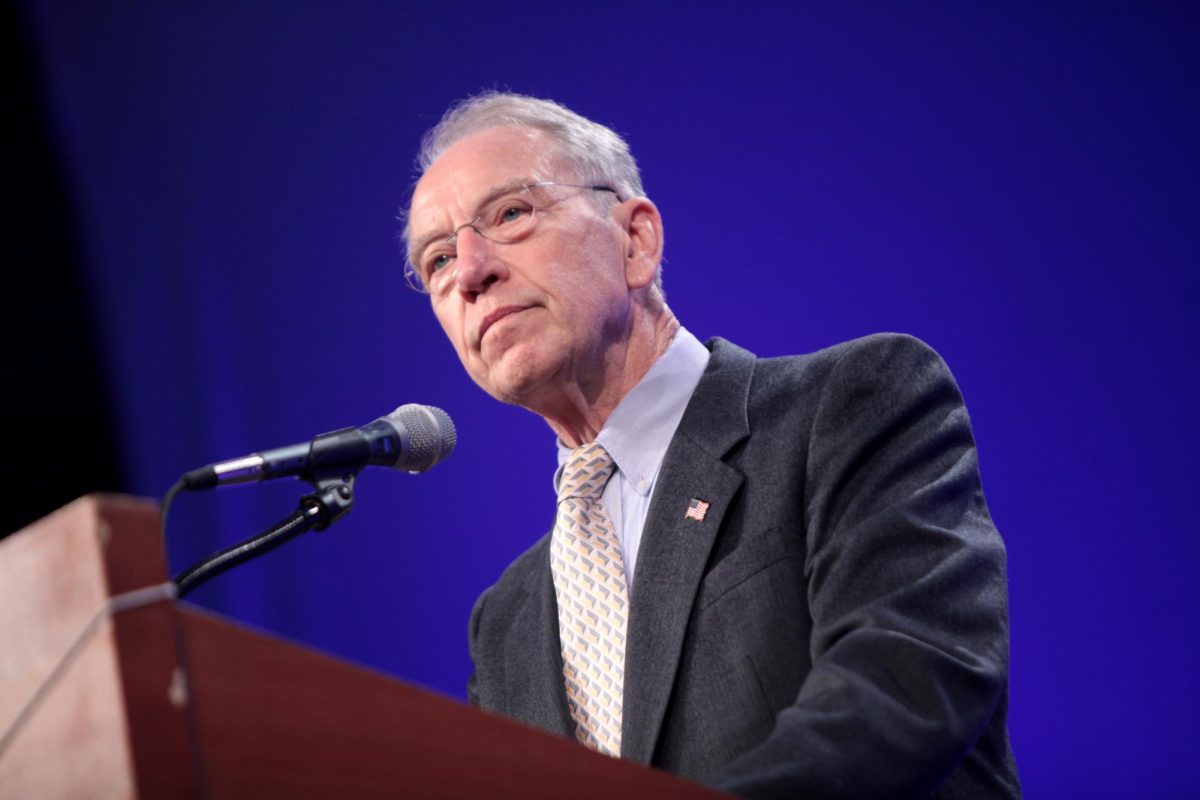HEMPSTEAD, NY- Hillary Clinton and Donald Trump met for the first time in a heavyweight, head-to-head debate in Hempstead, New York.
The topic of each candidate’s debate preparation strategies came to the forefront early on. Camera crews arriving at Hofstra University days in advance to begin coverage of the highly-anticipated debate.
One of the other topics bringing attention to the debate is the conflicting personalities of the two candidates. Trump’s spontaneous and often boisterous approach contrasts with Clinton’s scripted and more politically correct style.
Donald Trump came into the debate with a full steam of momentum, having crept up on Clinton in many swing state polls. Clinton seemed to be losing support after questions about her health and previous scandals began to arise anew.
In an interview with radio talk show host Steve Harvey, Clinton assured that she was ready for Trump’s inevitable attacks, saying, “I can take it. I can take that kind of stuff. I’ve been at this and I understand it’s a contact point.”
Clinton has decades of political experience, going all the way back to her tenure as the First Lady of Arkansas. Throughout her political career, much of her political success has been credited to diligent and in-depth preparation. The candidate spent much of the month of September off the campaign trail, recovering from a bout of pneumonia and preparing for the looming confrontation with her highly unpredictable opponent.
Jennifer Palmieri, Clinton’s communications director, told reporters before the debate that the former Secretary of State was working hard “preparing for the different Trumps that might show up.”
Real estate tycoon Donald Trump is reportedly taking a different approach. He succeeded in the Republican primary debates by seeming more off the cuff and genuine, as well as shaking up his opponents with a steady stream of one-liners. His approach to this debate didn’t seem much different.
“I think Donald Trump has done best since Donald Trump has been just let loose to be Donald Trump,” Trump advocate Rudy Giuliani said on Fox News’s “Fox and Friends.” “If you let him be himself, this man is an extraordinary political thinker.”
As to be expected, both of these starkly different preparation strategies resulted in two starkly different debate focuses and performances. From the very beginning, it became apparent that Clinton had come prepared to counter almost all of the jabs that had been thrown at her over the course of the previous weeks.
When attacked on her email scandal, where she reportedly sent classified documents and information over a nongovernment server, she responded in a way she never had before. She admitted, “I’m not going to make any excuses. It was a mistake.”
Trump responded to attacks and criticism in a different way.
“Trump was simply not prepared well enough for this debate,” the Washington Post reported. “He regularly struggled to deal with questions he had to know were coming.”
Many agree that the Republican candidate seemed to struggle with several issues he had been attacked on previously. These include questions having to do with his tax returns, his long-time claim that President Obama isn’t an American, and claims that he supported the Second Iraq War.
After Clinton outlined and supported her new tax plan with carefully rehearsed facts and hard data, Trump seemed to flounder, saying, “Typical politician. All talk, no action. Sounds good, doesn’t work. Never going to happen.”
In a moment where a rebuttal with other data and facts would have been crucial to undermining his opponent’s message, Trump instead returned to the anti-establishment, fear-mongering rhetoric that earned him his base of supporters. The problem is that this same strategy struggles to gain him support from independents and undecided voters.
This pattern did not stop, though. He seemed keen on scaring people into voting for him.
In his very first response of the debate, addressing how he would help the American economy, Trump again returned to his old message: “Thank you, Lester. Our jobs are fleeing the country. They’re going to Mexico. They’re going to many other countries.”
These responses truly reveal the level of preparation that went into Trump’s debate performance. There was absolutely no change in his message or tone, showing that he believed that he could simply rely on what he did and said during the Republican primary race to win over general election voters.
Clinton, on the other hand, showed off her countless hours of preparation prior to the debate, sending a clear, strong message about her policy and strength.
First, she came prepared for any attacks on her health and stamina. When Trump attacked that very thing, she responded decisively, saying, “Well, as soon as he travels to 112 countries and negotiates a peace deal, a cease-fire, a release of dissidents, an opening of new opportunities in nations around the world, or even spends 11 hours testifying in front of a congressional committee, he can talk to me about stamina.”
Clinton also made an effort to contrast her responses with her opponent’s by giving specific solutions and answers to questions, instead of diving deeper into the hopelessness of the problem. This became apparent from the very beginning, in her opening statement.
Again, in response to how she might help the economy, she focused on a solution, proposing more jobs in “infrastructure, in advanced manufacturing, innovation and technology, clean, renewable energy, and small business, because most of the new jobs will come from small business.”
Overall, the debate was a perfect example of why in-depth preparation for political events like the debates is crucial to impressing voters. Trump seems to have learned his lesson the hard way. In preparation for the town hall-style second presidential debate on October ninth, the candidate held a town hall rally the Thursday before. He still refuses to call it preparation, though.
“[The media was] saying this is practice for Sunday. This isn’t practice,” Trump told the crowd. “We’re just here because we wanted to be here.








